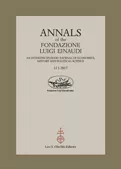Far from exclusively challenging Europe’s present and future, the current crises are also changing its relations to the past. The analogy with the 1930s has been repeatedly evoked as a key for understanding the current European crises. Nevertheless, history, even the ‘history of the present’ (as paradoxical as it may seem), is always an essay in comparison and contextualization. The aim of this paper is therefore to re-think today’s European crises within a broad historical perspective by proposing a historiographical overview of the crucial transitional periods in the twentieth century, such as post-1989, post-1945, and post-1918. Moreover, it intends to conduct a critical assessment of some master narratives of twentieth-century Europe and their effort to combine in many contradictory ways the post-1914 catastrophes with the post-1945 reconstruction. It is particularly designed to re-frame the ‘history of the present’ from two points of view: 1. how do some master narratives conceive the both catastrophic and progressive experiences of the twentieth century and the ways in which they still affect and shape the present? 2. in what sense and to what extent is it possible to understand over time the dynamics of both destruction and reconstruction, destabilization and stabilization, disintegration and integration?

 Clarke, P. (2017), “Keynes and the Manchester Guardian’s Reconstruction Supplements”, Annals of the Fondazione Luigi Einaudi, 51(2): 9-23
Clarke, P. (2017), “Keynes and the Manchester Guardian’s Reconstruction Supplements”, Annals of the Fondazione Luigi Einaudi, 51(2): 9-23

